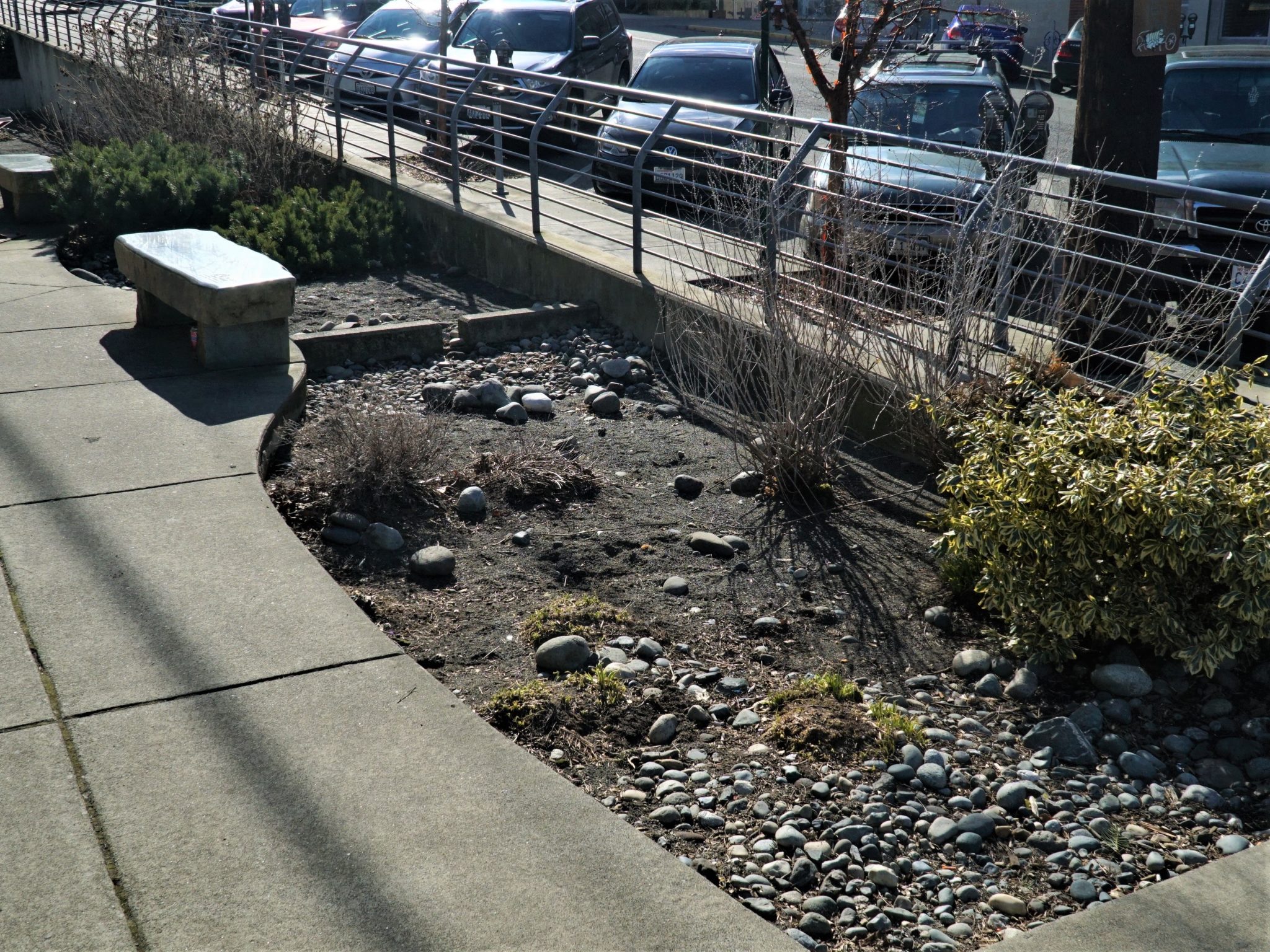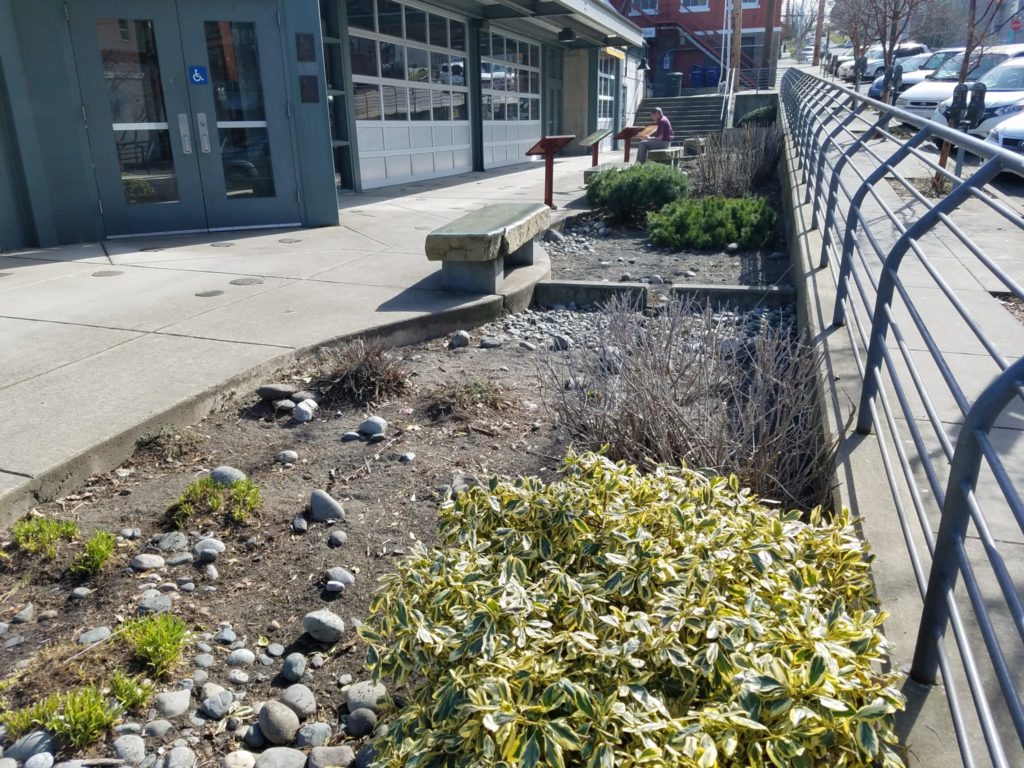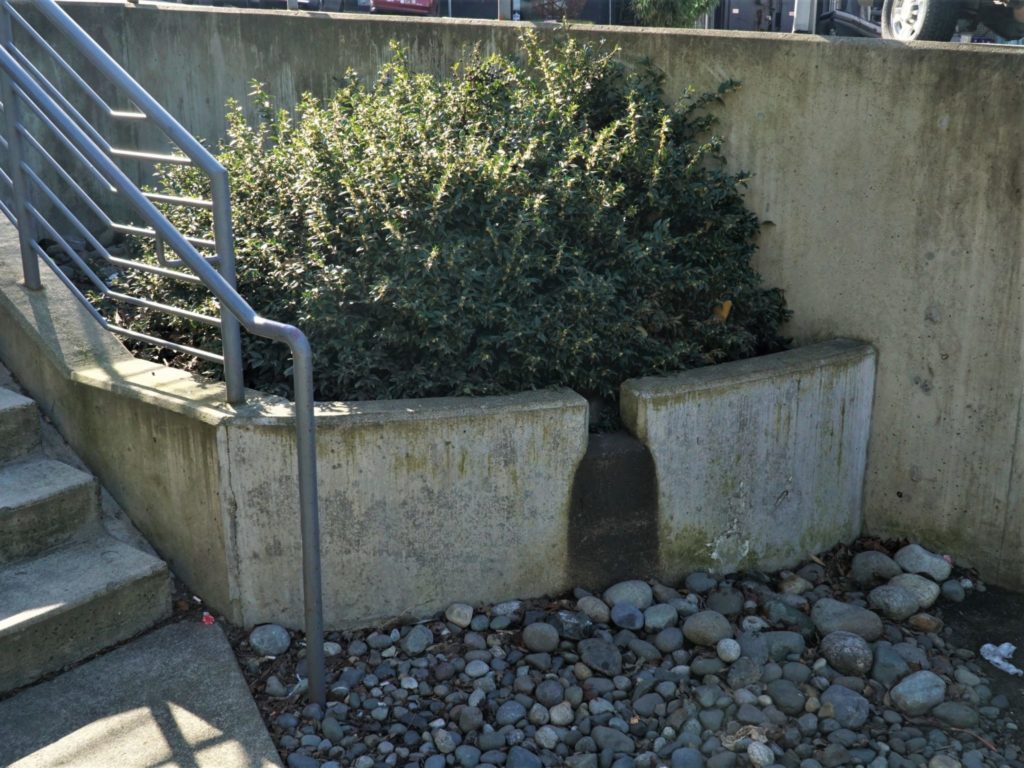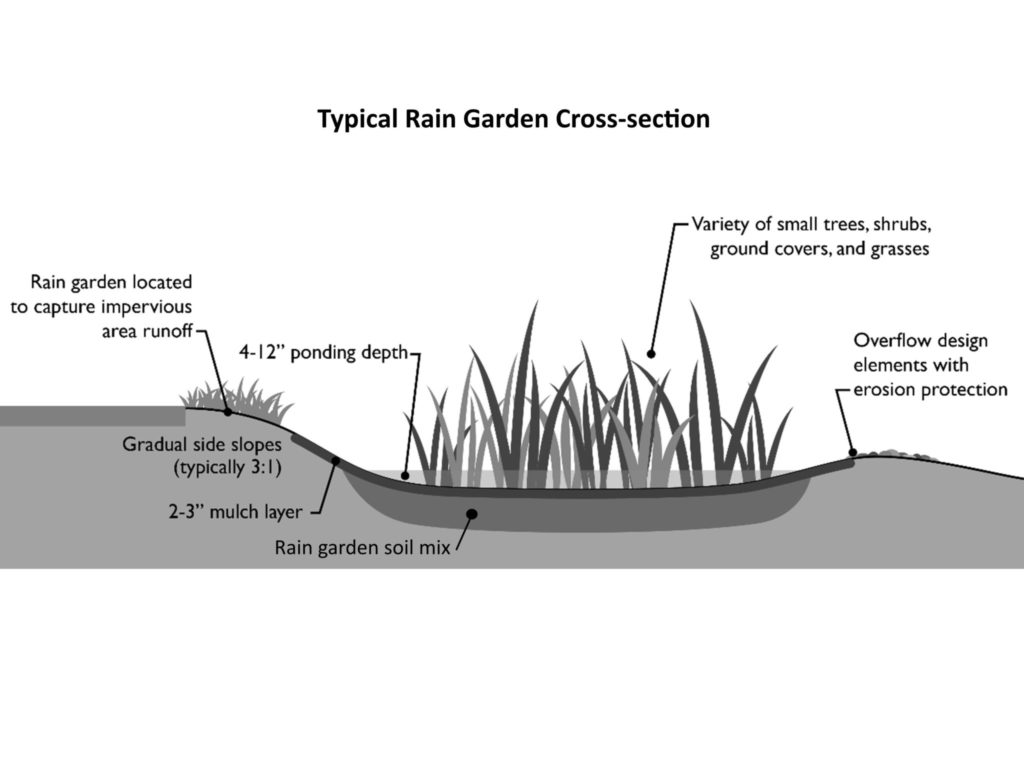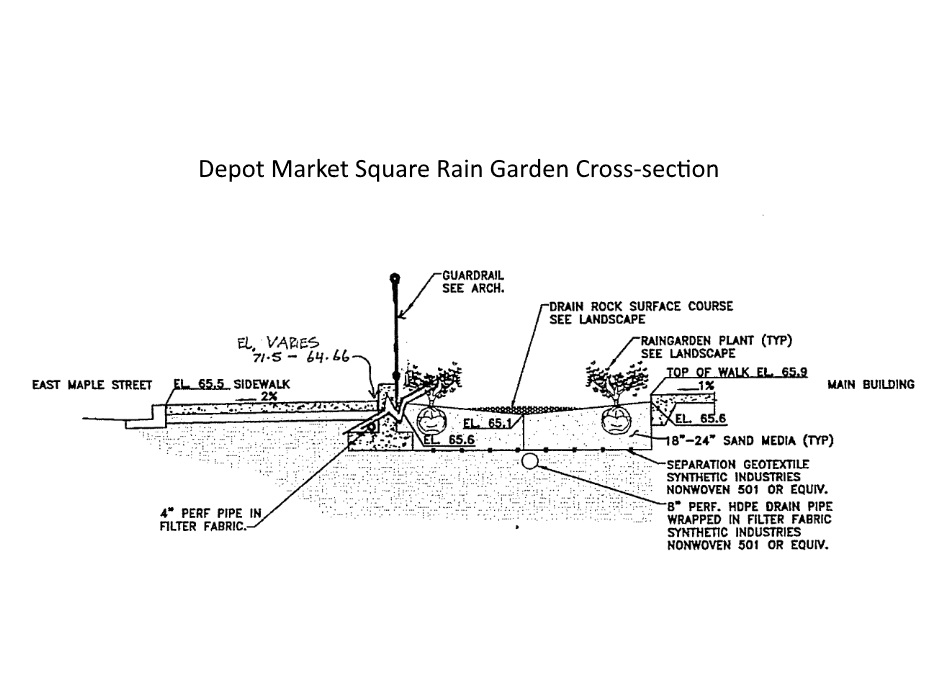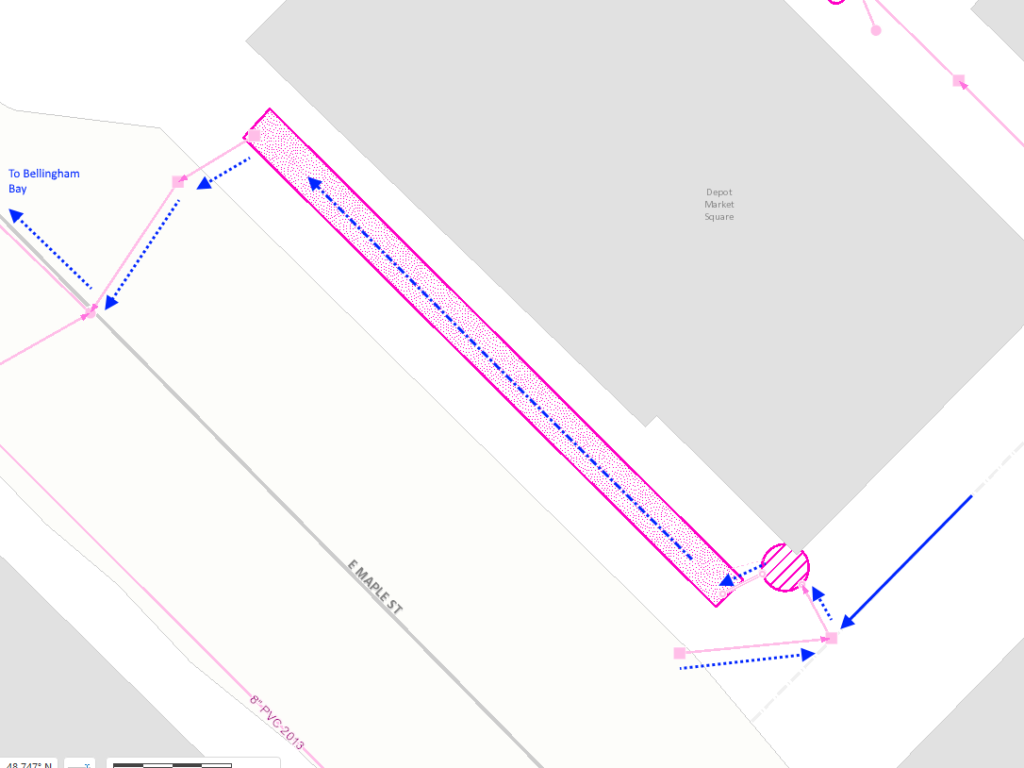Where is this located? It’s on the side of the Depot Market Square that faces Maple Street.
What’s special about this place? This rain garden was designed as a landscaped amenity at the Depot Market Square to provide some plants and sitting area while at the same time functioning as a stormwater treatment system.
image gallery
select any photo to see a slideshow
